Afrikan Coast, 253 BC
How does it feel being in the heart of enemy territory? Especially when you don't agree with your Consul's strategy? How does it feel when you don't even trust the Consul yet your life is in his hands? And worse, how does it feel when that Consul you don't trust is your nephew?
Marcellus Aemilius had these thoughts in his head the night before. He couldn't sleep a wink. After all, his force was under siege from a massive Carthaginian army.
This is Servius' doing. Somehow, some way, he gets this huge army to head straight for this fort when I land. And it just so happens to be the largest army in the area.
Marcellus had no idea what the Consul's motive was behind this, but he knew it was something. Was it retaliation for basically trying to get him impeached and disowning him in the Senate? That stupid clerk, so self-assured, had bated him into doing it. Marcellus regretted saying the things that he had said, but not enough to take them back.
And now the orders had come in from that same Consul. He was to sally out and defeat the army besieging his fort. This would not be an easy thing to do.
1,832 men. This would be the largest single army (excluding reinforcements) that any Roman had ever faced in combat. And they were all either men that could form phalanxes or skirmishers. In other words, a pain to kill.
Might as well do this before it gets too hot out, he thought, walking out of his tent. It was 5:30 in the morning.
The only other person awake and outside was his tribune and little brother, Oppius Aemilius. He went straight for Marcellus when he saw that his older brother was awake.
"Marcellus, I'm scared."
The kid was sixteen. It was his first battle, and he should have been in the Scriptorium in Roma. Instead, he was here.
"So am I, Oppius. So am I."
"Were you scared in Comata? When you were facing Segovax?"
Marcellus laughed at this. Comata. His last battle. Seemed like such a long time ago.
"Well, in short, no. I was annoyed at my legion because they had no fighting spirit. Plus, in Comata we outnumbered and outclassed the enemy. Here it's a little different."
Marcellus sent Oppius out to wake the army up. That kid had better stay alive. Otherwise Mom and Lucius will kill me.
His strategy was simple: Sally from two gates. The main force would meet the Carthaginians head-on and hold them in place. The second force, sallying from a side gate, would then flank the living snot out of the enemy and send them running.
He set the army up in this way. He would lead the main force while Oppius would be the hammer. It was Marcellus' plan to leave his brother's escort out of the battle.
However, the Carthaginians were ready for this. As soon as Marcellus' force opened the gate, they hightailed it for a spot equally between the two gates. Curses, looks like we'll just have to outfight 'em.
The Carthaginian captain, aware of his superior numbers, decided to just charge against each force, and hoped they would break against the initial crush. If that didn't work, then there were always reserves. Oppius' force was targeted first. He would show this Roman the folly of trying to flank.
Soon after, several phalanxes charged the main body of troops. The skirmishers and funditores fired away, but still the Carthaginians came. This would be an endurance fight. How many of them do we have to kill before they finally break? Instantly Appollonia came to mind, and Marcellus shuddered.
He settled in for the long haul. Primarily, his job was to chase after the skirmishers, ensuring that their javelins wouldn't take the lives of his already-pressed infantry.
Time passed. The sun got higher in the sky. The Romans were pressed. They had killed hundreds of Carthaginians but there were simply too many. This Carthaginian captain had done a good job at sending in reserves. The situation looked grim.
Worse still, the Italian cavalry had just been targeted by a unit that snuck away from the main fighting. Marcellus desperately ordered them back to the fort, but not before they were severly wounded by the enemy's spears. Aside from the funditores, the only unit that wasn't engaged was Oppius' escort. He saw that the unit that had damaged the Italian cavalry was the captain's unit, and that they were under-strength to begin with. The Italian skirmishers were currently battling them with mixed results.
If I order Oppius to do something he might die.
If you don't then it might not matter.
Finally, he took the iniative.
OPPIUS! KILL THE CAPTAIN!
Oppius Aemilius, no longer scared, headed full throttle for the small phalanx. The enemy captain, sticking out front, had no chance.
Instantly the effect showed. The Carthaginian units immediately near the captain broke. Marcellus, Oppius, and the infantry pursued.
They had been taken care of, but a body of Carthaginians were still holding strong. They were absolutely damaging the Roman infantry. Marcellus didn't care what the Senate thought about the losses at the moment.
He looked at Oppius, and the two smiled. No order needed to be given. They headed together for the Carthaginian rear. The result was inevitable.
That night, back in the fort, Marcellus rubbed the kid's hair and grinned.
"You saved us all, kid. Good job."
Oppius beamed. The losses were horrendous, but would have been a lot worse had it not been for him, and he knew it. The two Aemilii would have an interesting career ahead of them.






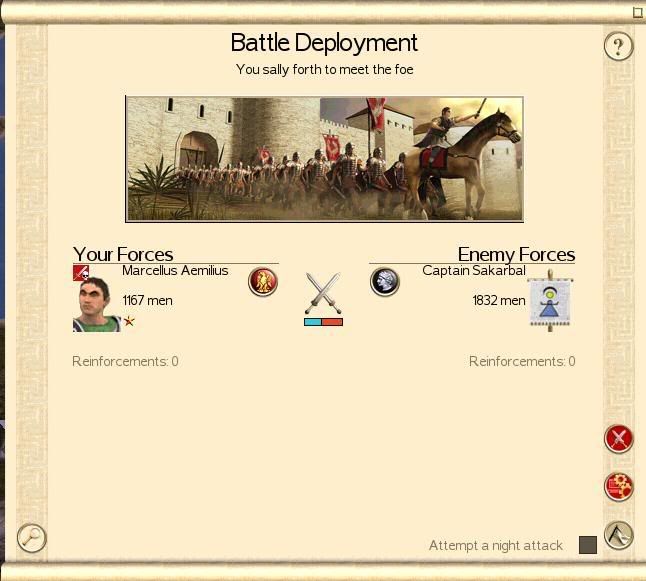
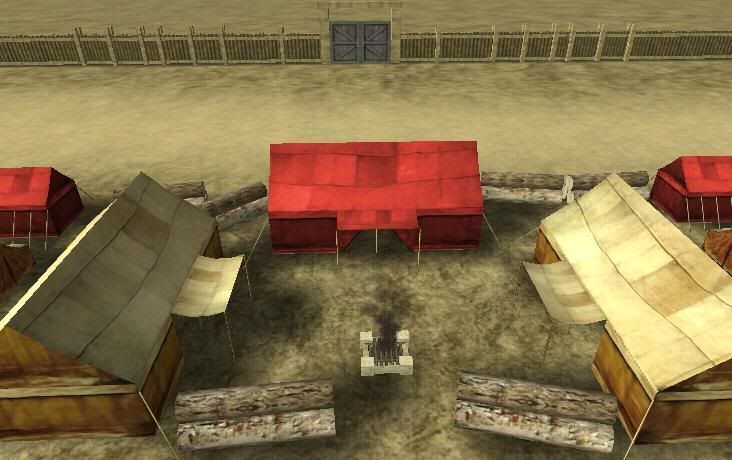
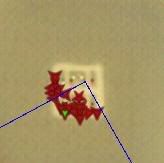
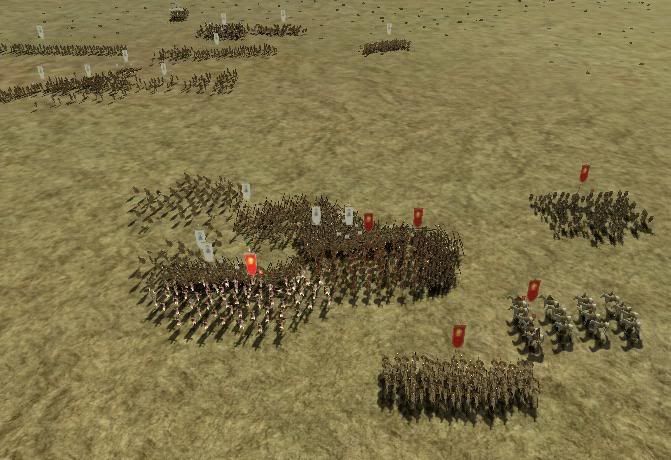
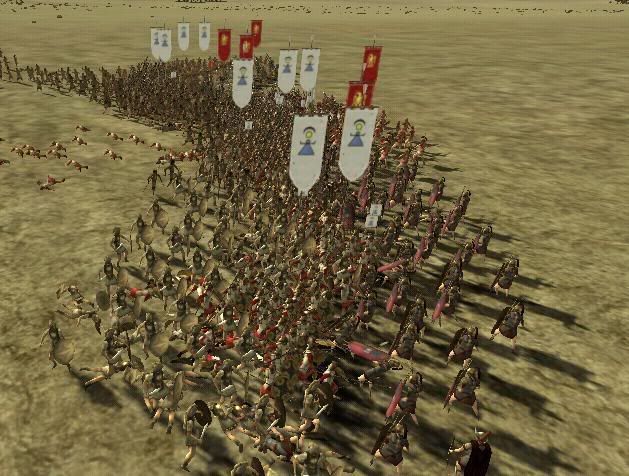
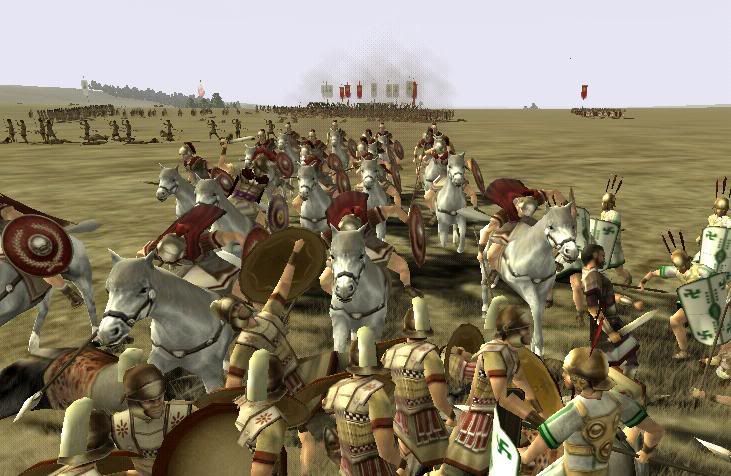
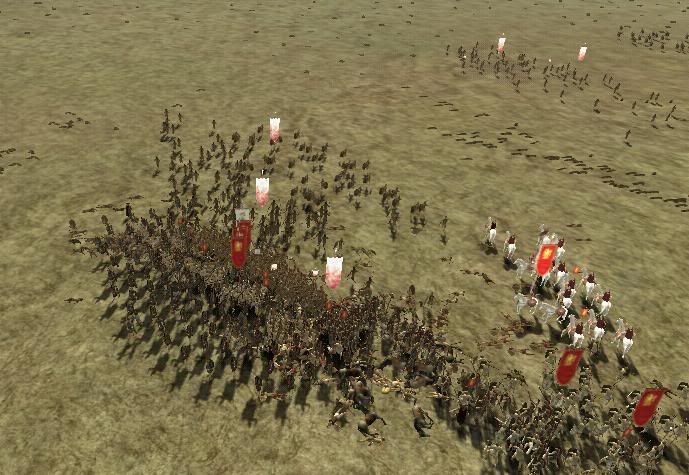
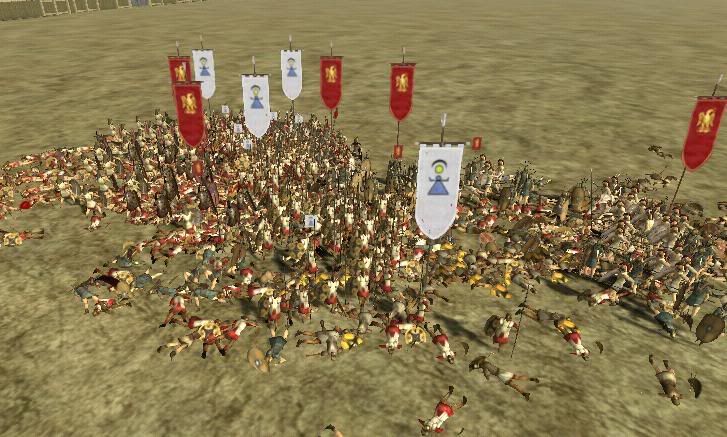
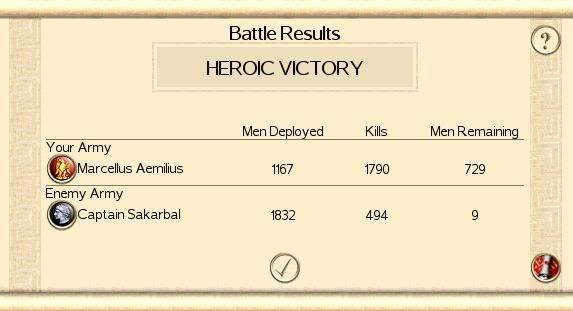



 Reply With Quote
Reply With Quote

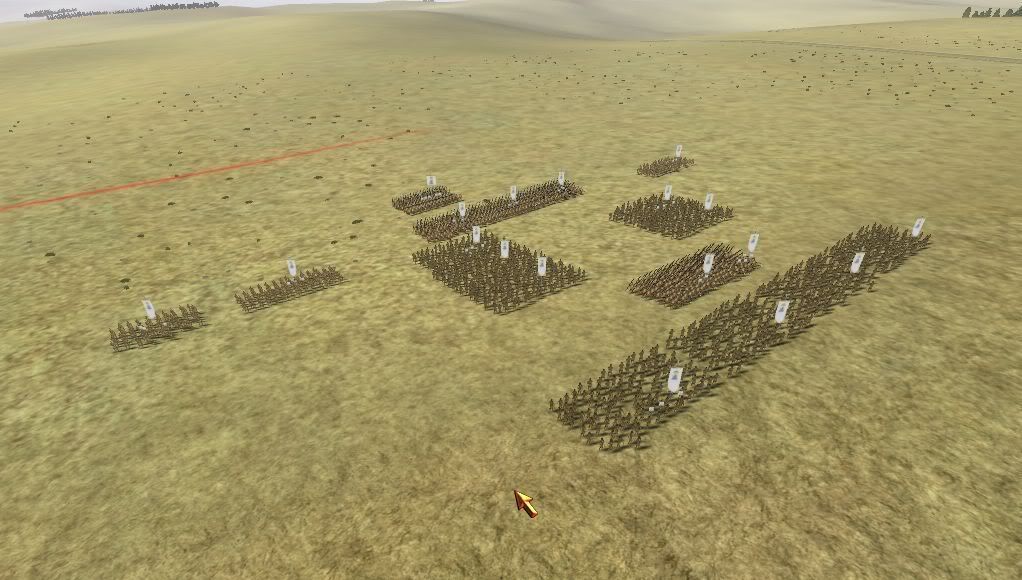
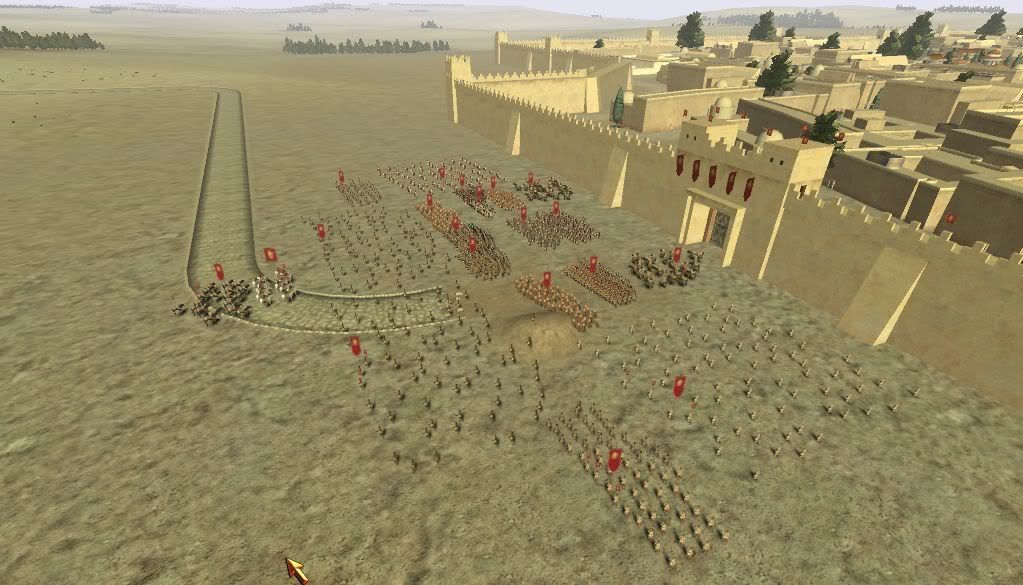
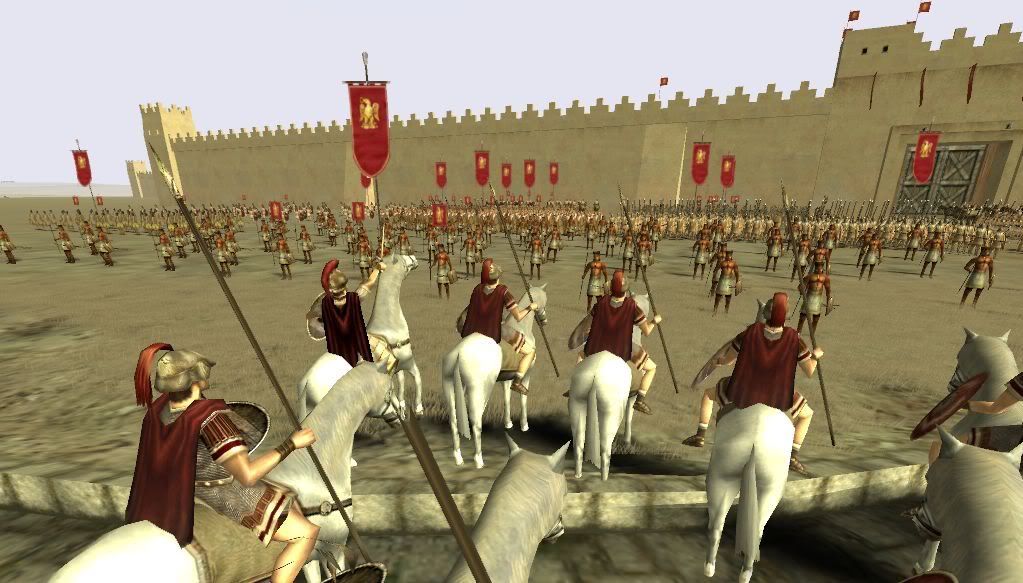
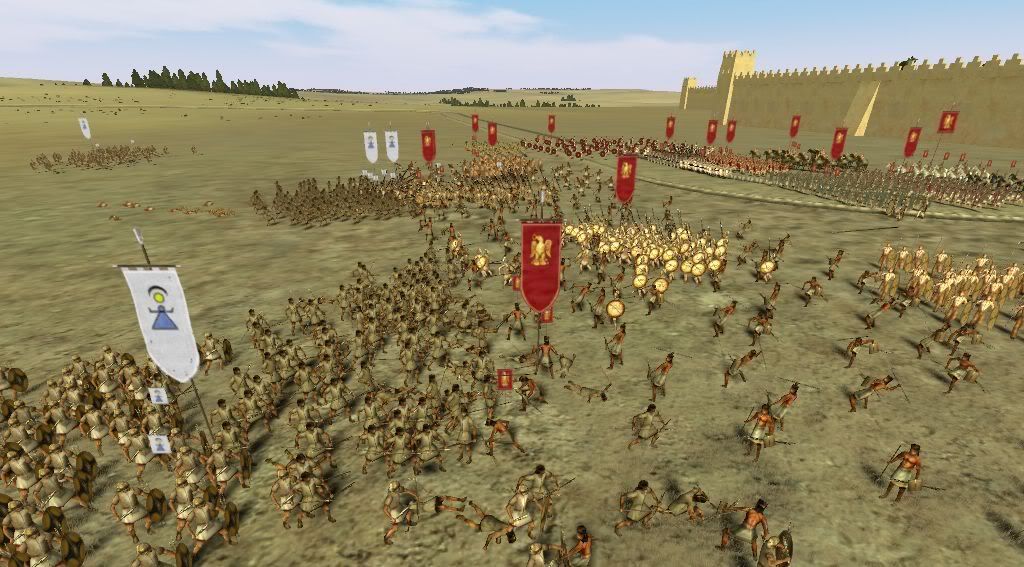
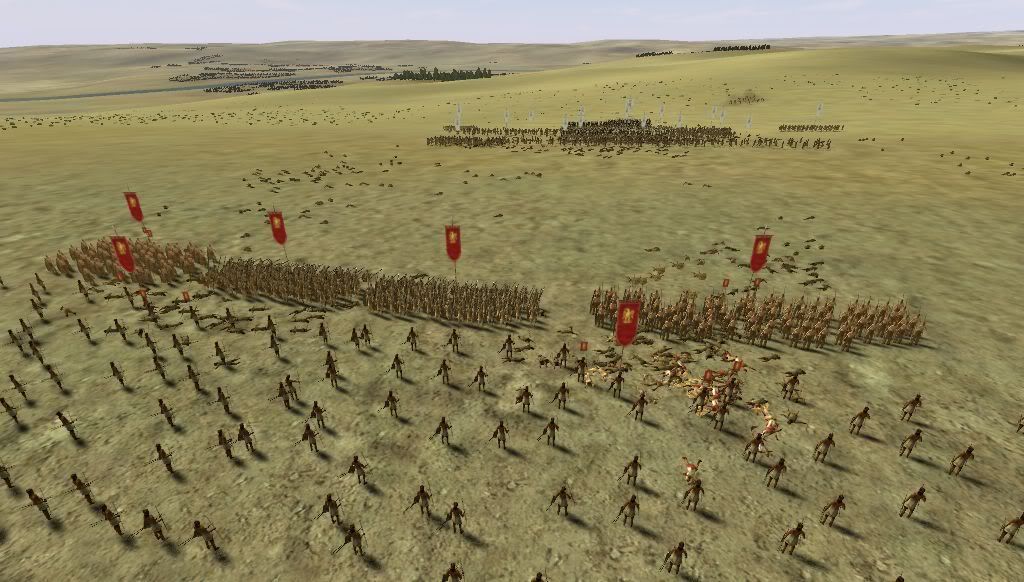
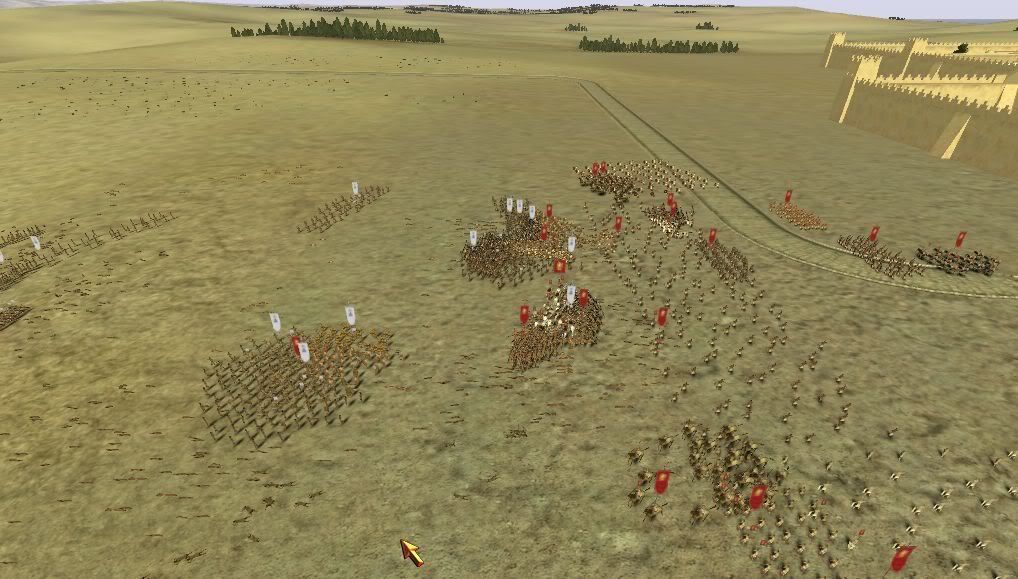
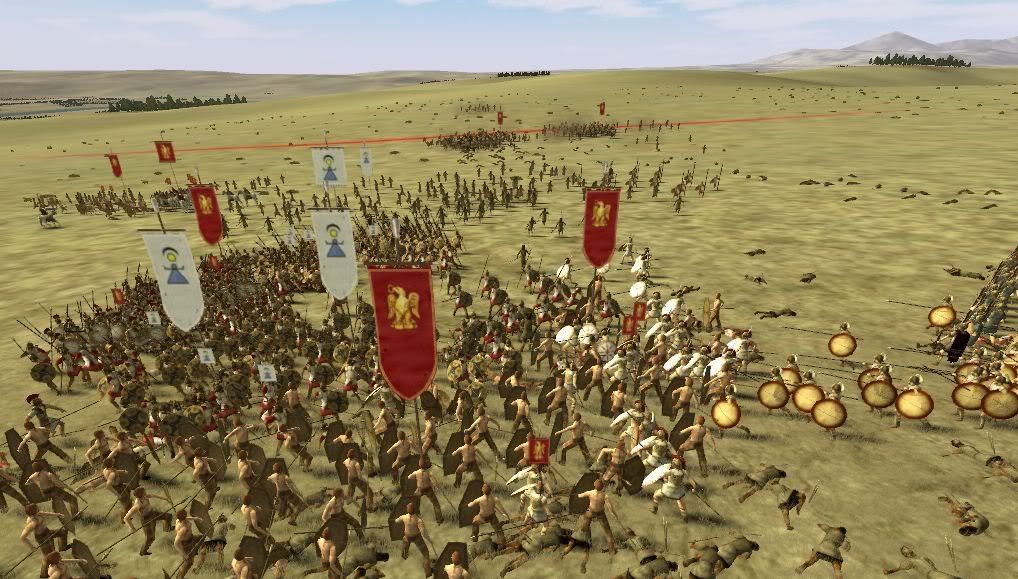
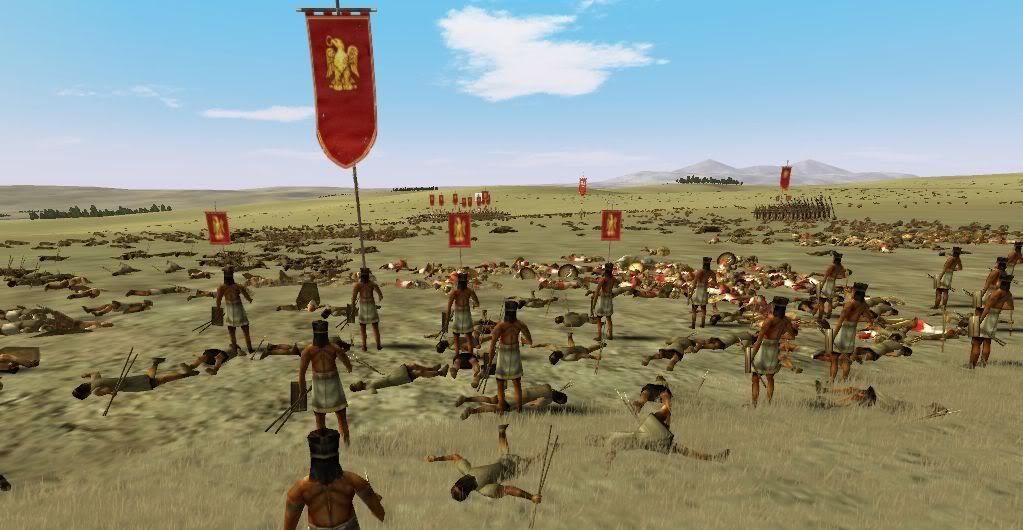
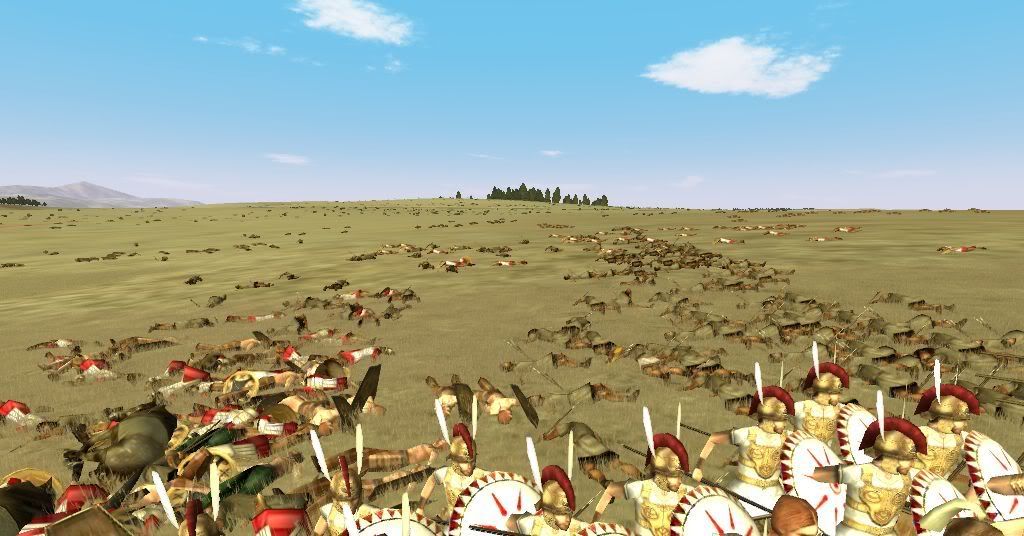
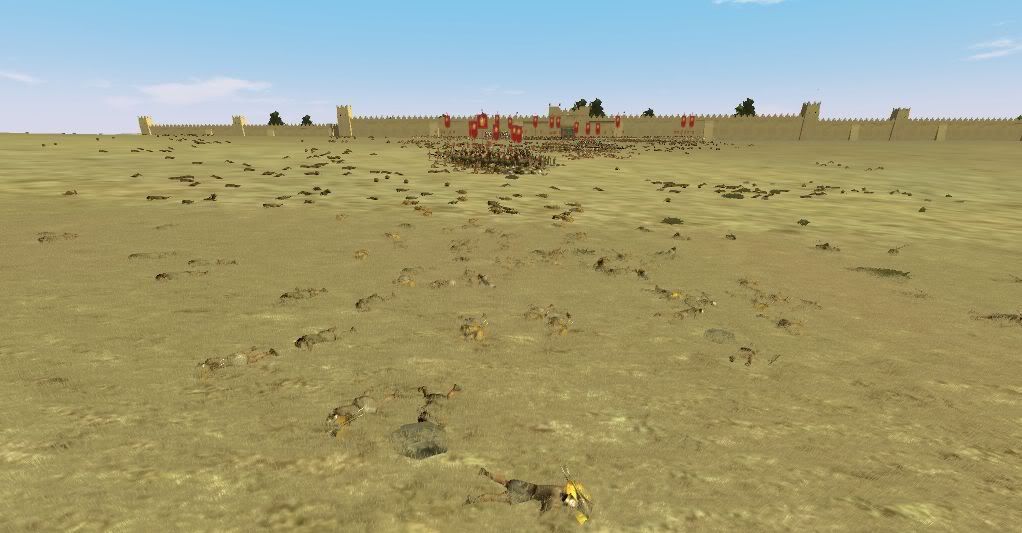
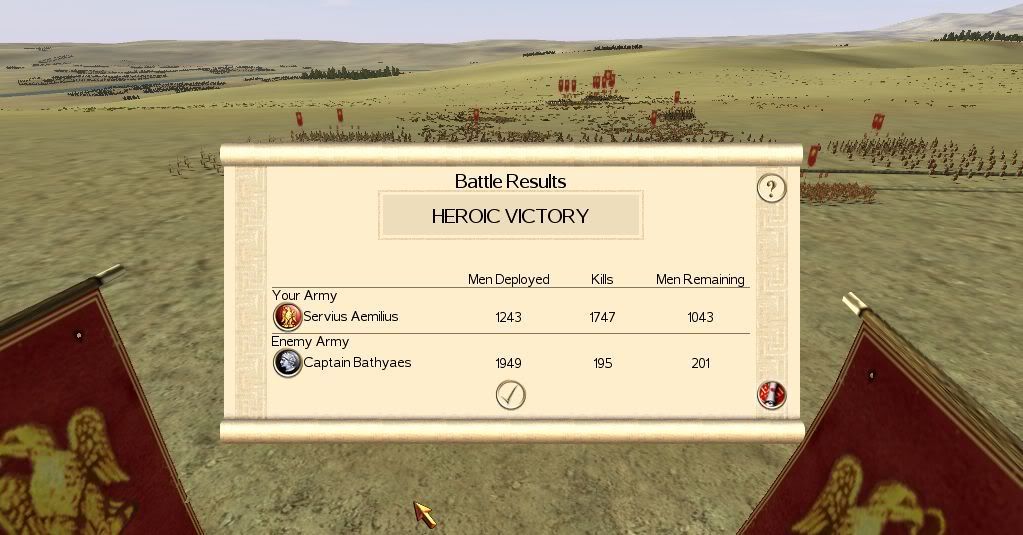


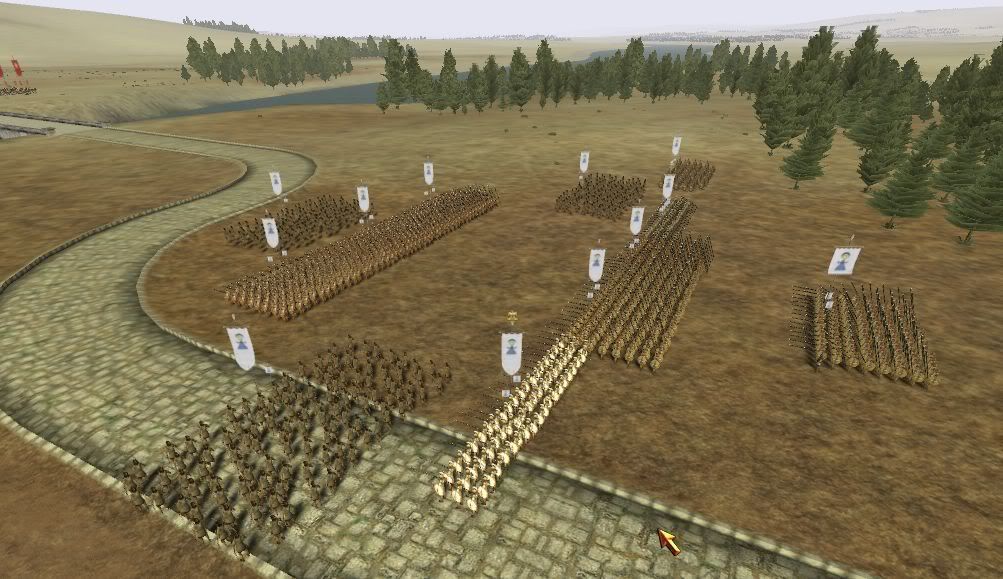
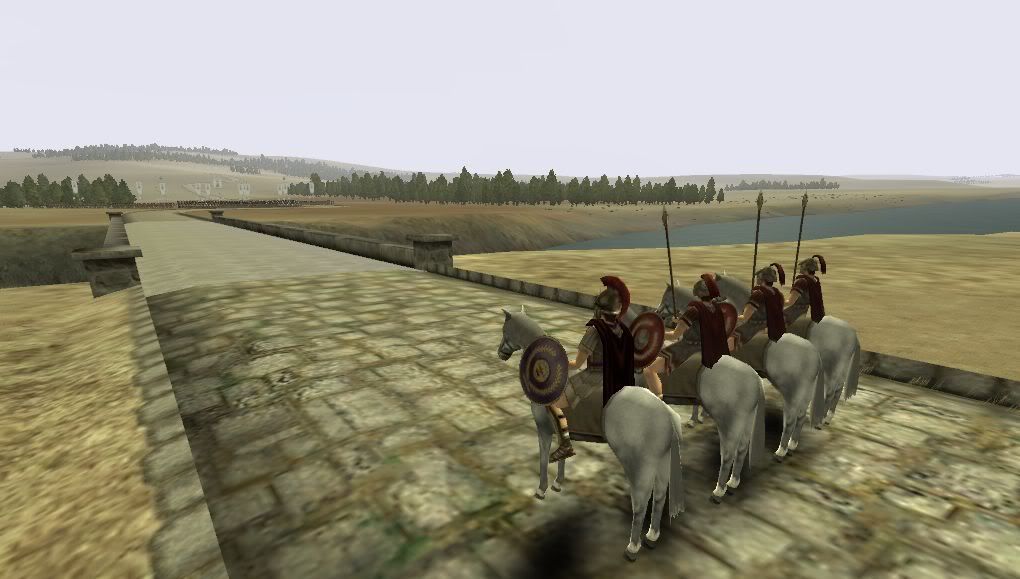
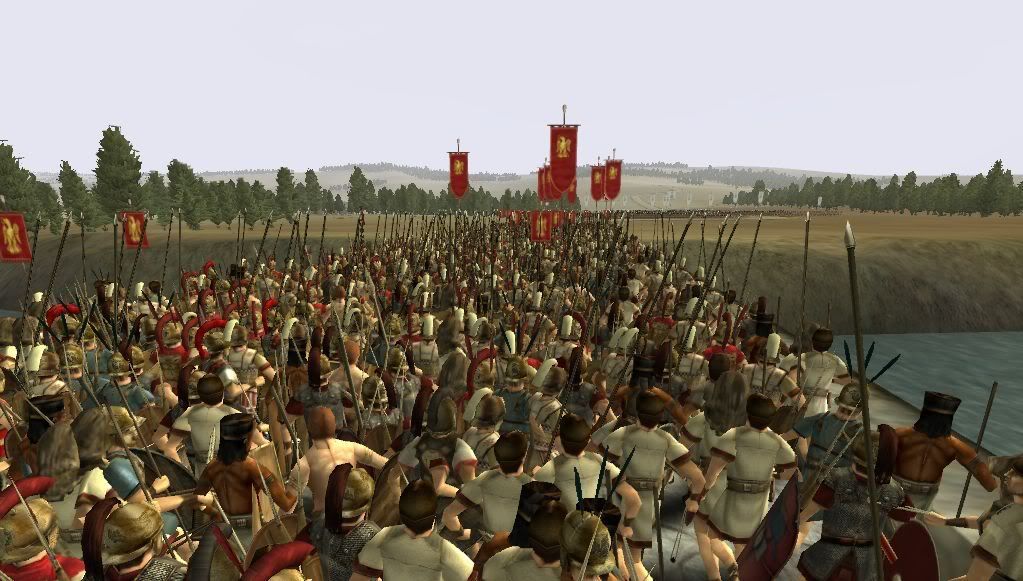
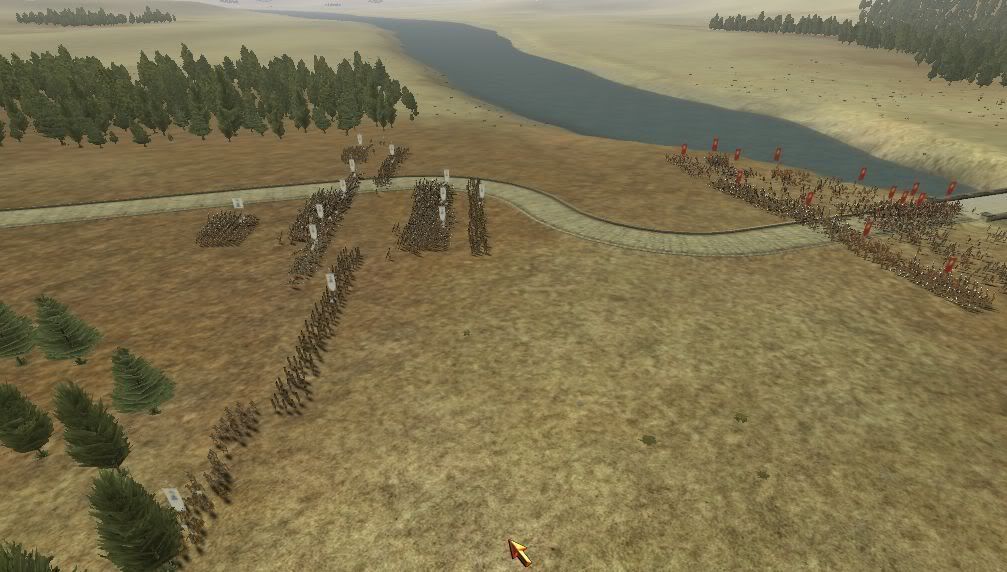
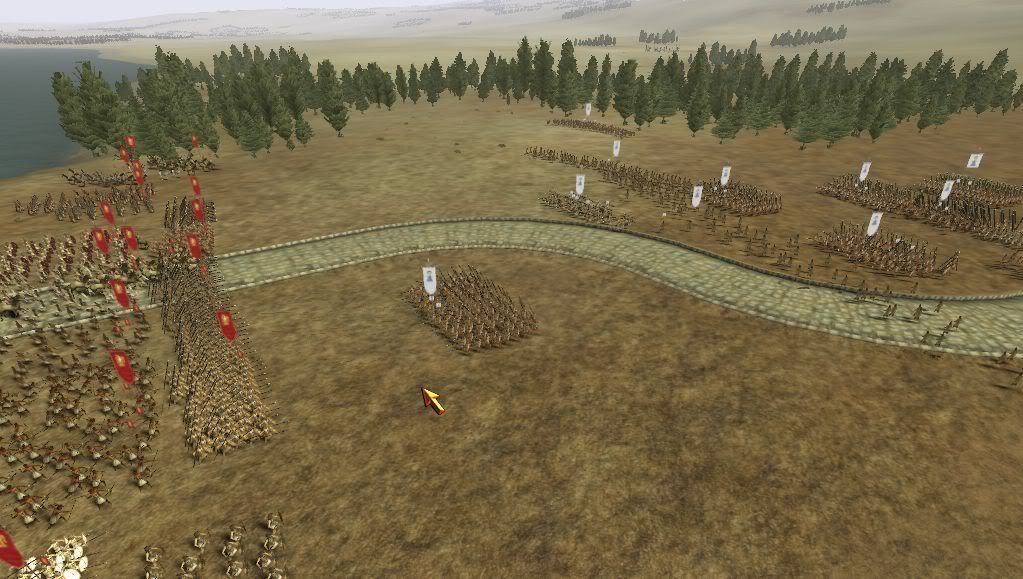
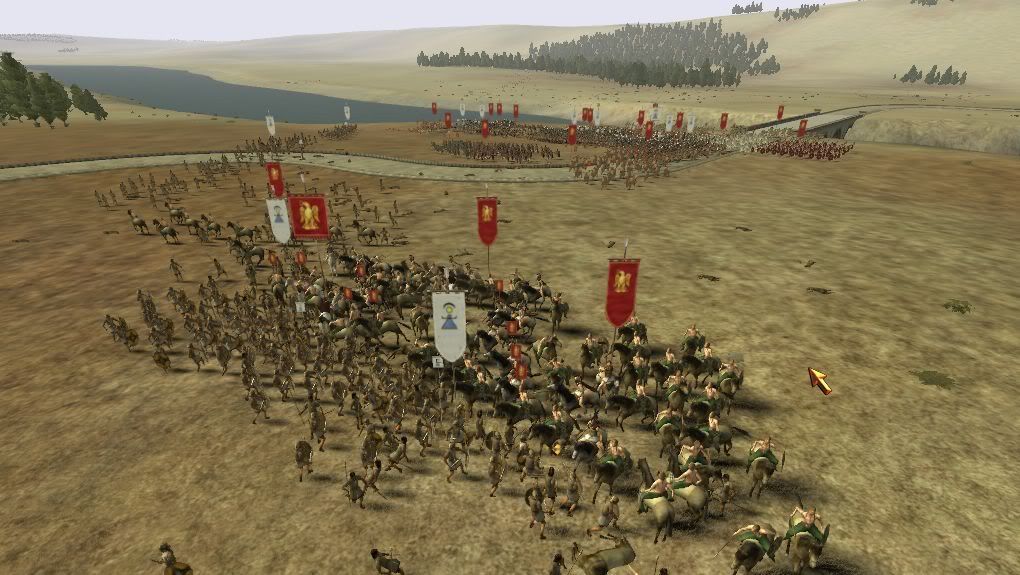
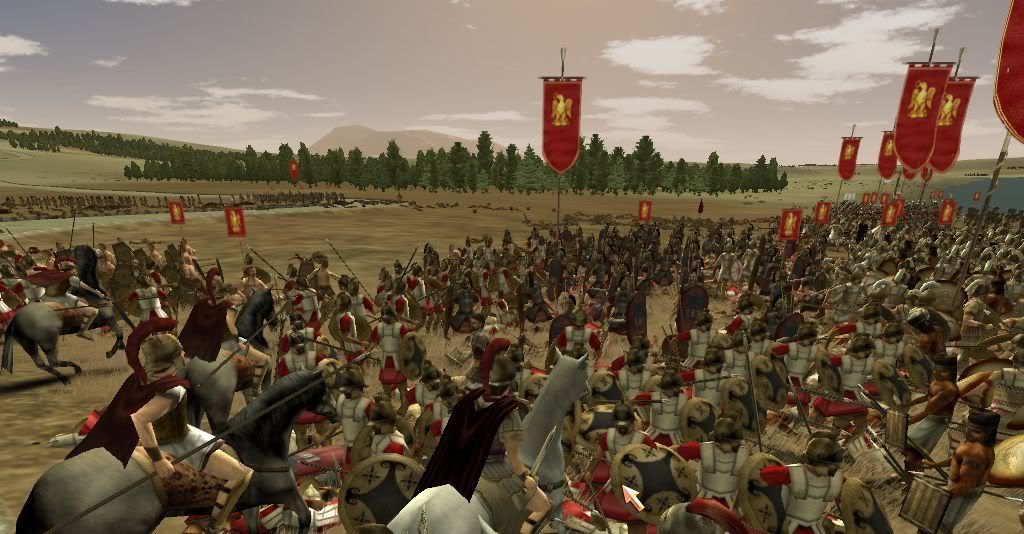
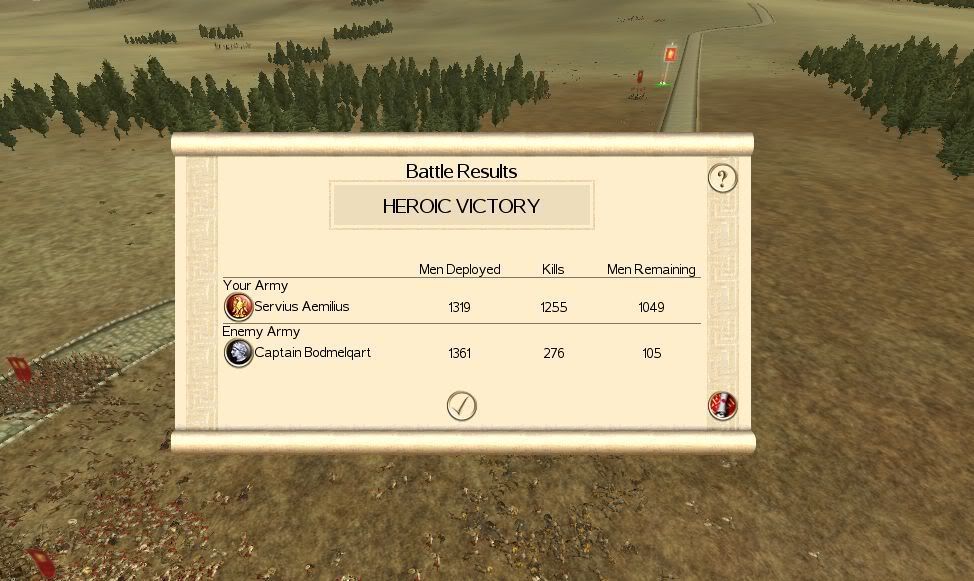
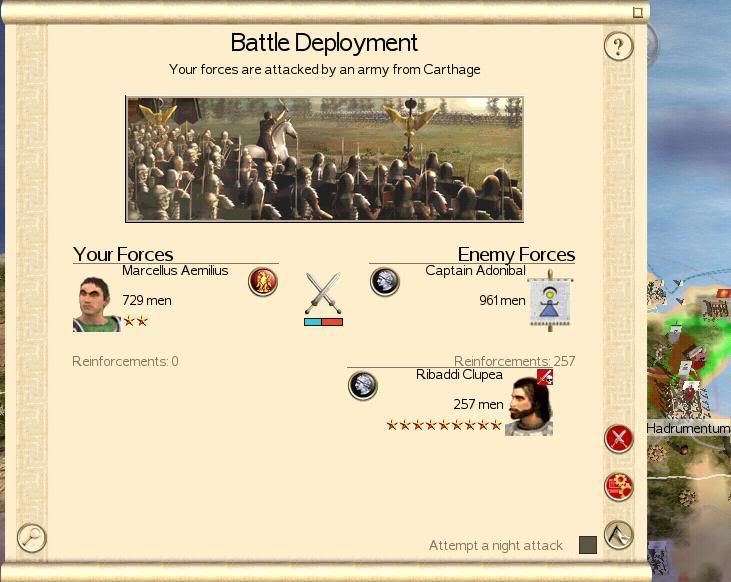
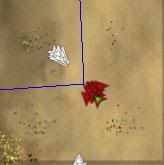
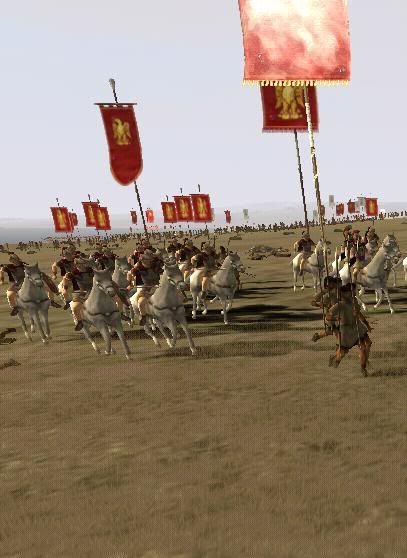
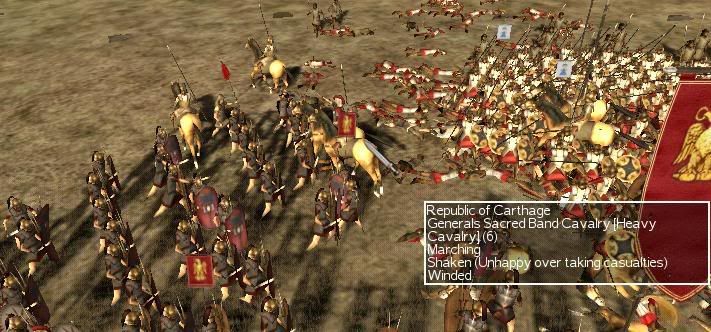
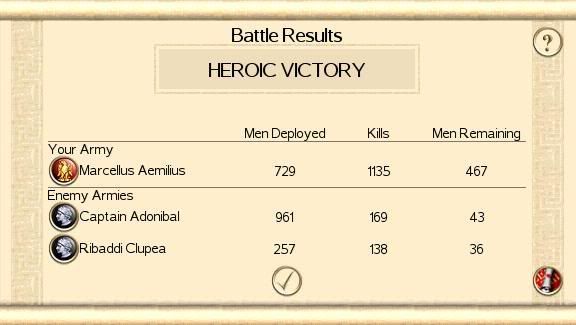
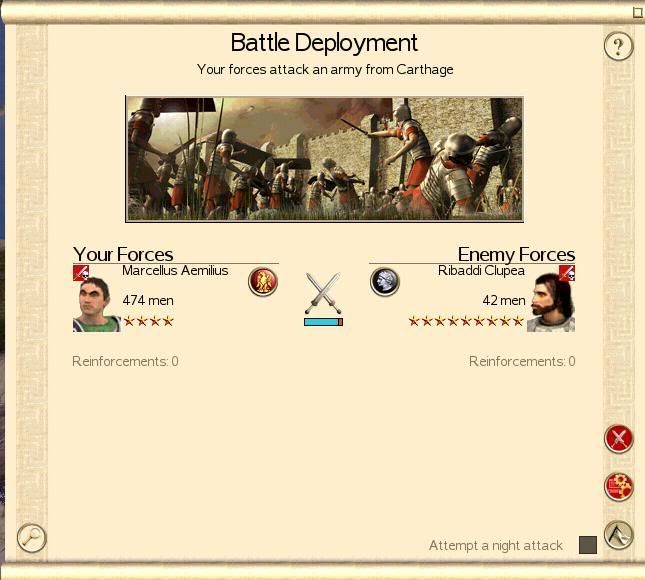
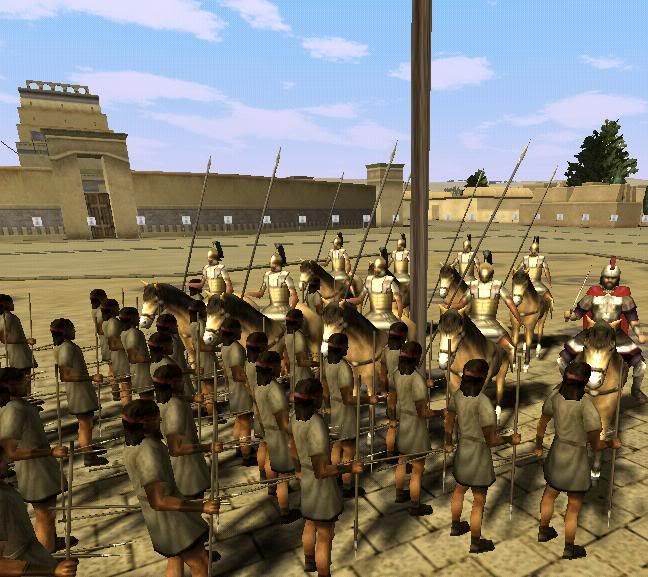
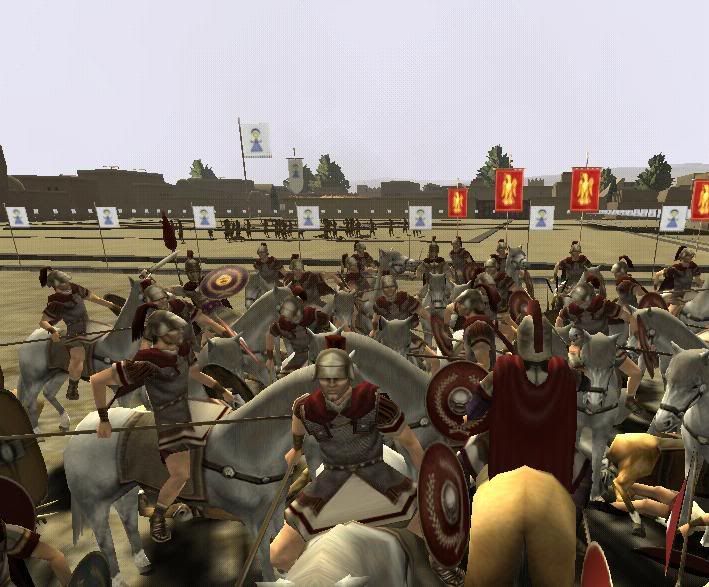
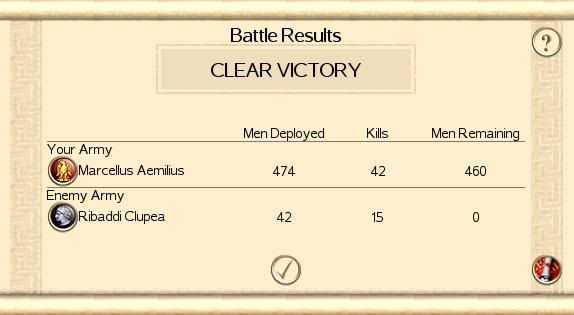








































































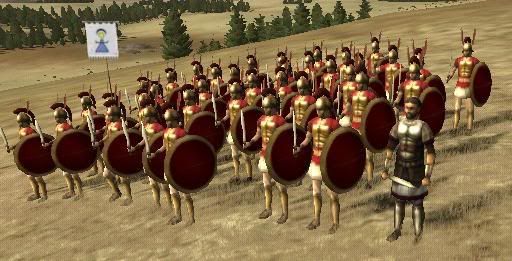
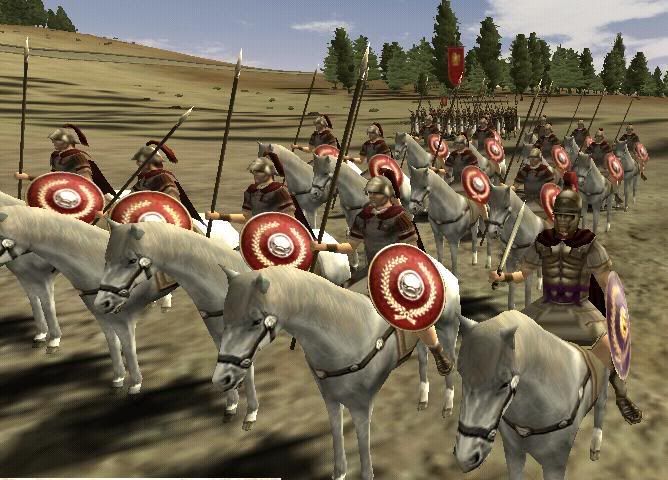
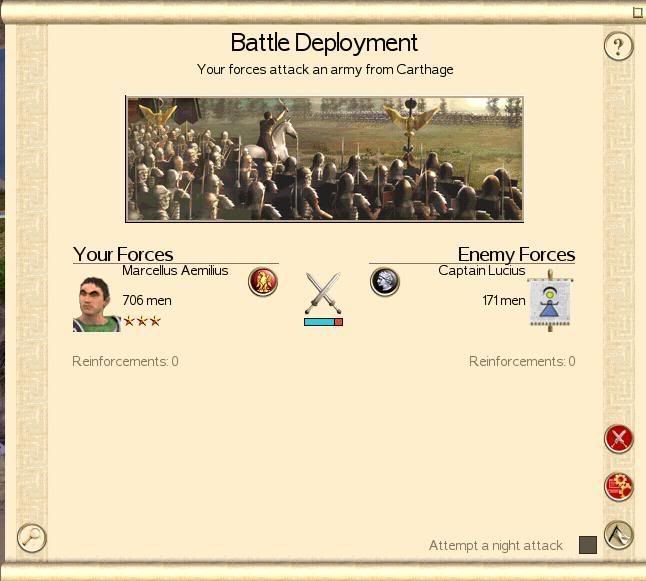
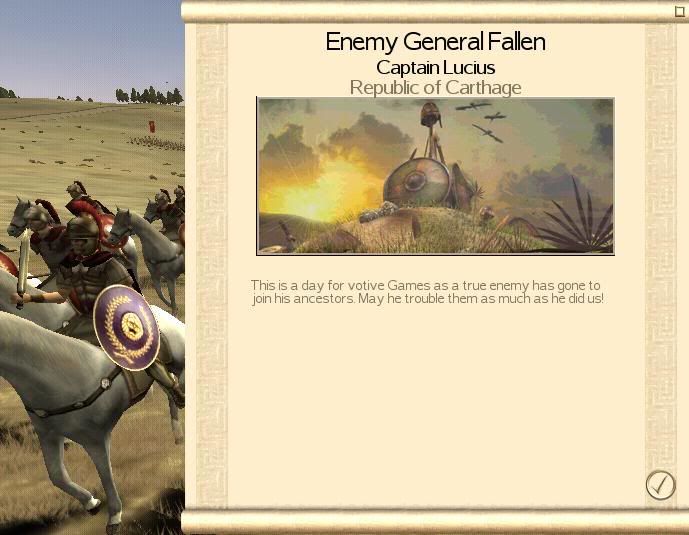

































Bookmarks